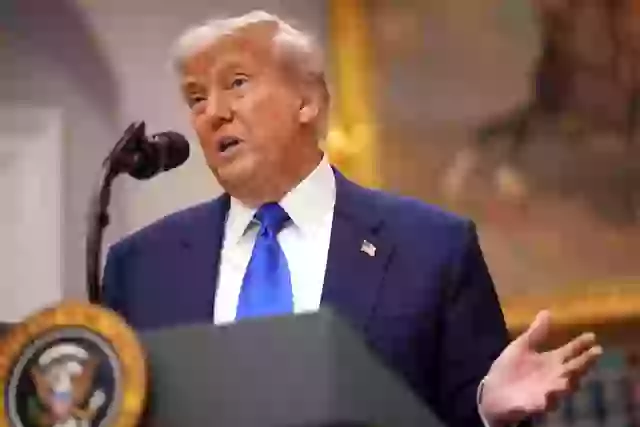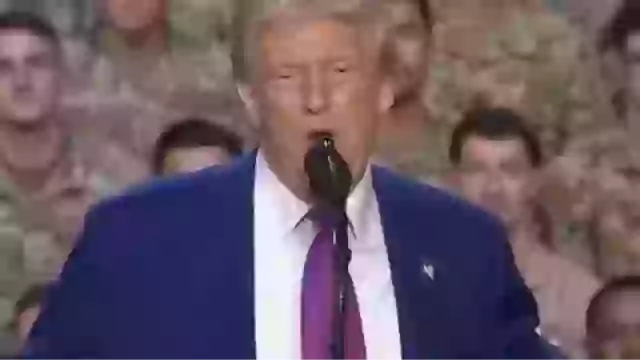Former U.S. President Donald Trump has triggered outrage across Europe and beyond after making a bold and controversial claim about the outcome of World War II.
While speaking to U.S. troops stationed in Qatar on May 15, Trump criticized European countries for commemorating Victory in Europe Day (May 8)—a date marking the Allied defeat of Nazi Germany in 1945.
Trump’s Controversial Remarks
According to Trump, too many countries are celebrating a victory that was ultimately delivered by the United States.
“Russia was celebrating, France was celebrating, everyone but us,” he said. “We’re the ones that won the war. Without us, they’re speaking German—and maybe a little Japanese too.”
His comments came during an impromptu speech in which he claimed that France, Russia, and other nations were too eager to celebrate WWII victories while ignoring America’s central role.
A Dig at France
Trump didn’t stop there. He went on to mock French President Emmanuel Macron, even impersonating his accent while questioning France’s role in the Allied victory:
“We love France, right? But I think we did a little more to win the war than France… When Hitler made a speech at the Eiffel Tower, that wasn’t exactly ideal.”
He sarcastically recounted a phone call with a European leader:
“‘Donald, we are celebrating our victory over the Germans.’ I said, ‘What the hell?’ Every country I’ve spoken to is celebrating except us.”

‘Liberation Day’ and Renaming Veterans Day?
Trump revealed that his team has now officially recognized May 8 as a U.S. celebration of victory in World War II.
He also proposed renaming November 11, traditionally known as Veterans Day, to “Victory Day for World War I.”
“We won that war too,” he said, referring to World War I. “So we should celebrate it properly.”
Online Reactions Pour In
Social media users and political commentators didn’t hold back. Critics across the Atlantic and in the U.S. slammed Trump’s comments as:
- “Arrogant and historically tone-deaf.”
- “Needlessly antagonistic toward U.S. allies.”
- And, in one tweet: “This is why Europe wants nothing to do with the US.”
Others pointed out the irony of Trump’s statements, referencing the French support during the American Revolutionary War:
“Without France, Americans would still be drinking Her Britannic Majesty’s tea.”
Final Thoughts
While Trump’s comments aim to reinforce an “America First” narrative, they’ve reignited diplomatic tensions and stirred debates about historical accuracy, nationalism, and international cooperation.
As 2024 elections draw closer and Trump remains a dominant political figure, such statements are expected to continue sparking headlines—and controversy.
